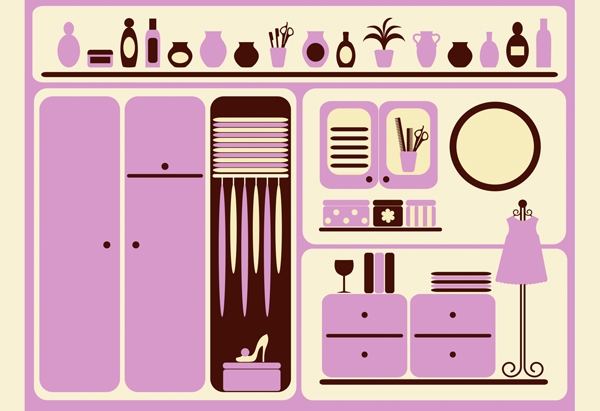How to Cure Your Clutter Problem

Photo: Thinkstock
I'm one of those people who gradually accumulate possessions until their living spaces begin to feel stuffed up. Folks like me sustain an ongoing attempt to spring clean, but something in us always protests. It makes us cling to possessions we don't need, hesitate before discarding things, and set discouragingly ambitious rules about how de-cluttering should happen. If you're one of us, perhaps you should consult a doctor. Happily, I'm sort of a doctor (I have a PhD), and through extensive experimentation (cleaning my own house), I've arrived at a simple, effective clutter cure I call "Walk-Out Therapy." It will help you make your home a peaceful space where you can thrive.
Diagnosis: Domestic Stuffiness
The tendency to overstuff our homes is an inherited condition that evolved when living circumstances were harsh. One of my great-grandfathers supported 13 children on a wooden shoemaker's income; a great-grandmother on my father's side of the family survived by gleaning wool left on thorn trees by passing sheep and knitting it into socks for cowboys. My point is not that I come from people obsessed with footwear but that just a few generations back, most folks had almost nothing. We're programmed to be pack rats—to hoard, not jettison—our possessions. Add to that the unprecedented wealth of modern society, and you get an epidemic of clogged living spaces.
The obvious de-cluttering solution is to throw out things the moment you no longer need them. Easy, right? Wrong. Your inner pack rat won't stand for it. "But I can still wear that!" it squeals as you consider discarding a 20-year-old jacket with shoulder pads. You feel an intensely visceral clutching anxiety that won't abate until you hang the unsightly garment back in your overstuffed closet.
So, the first step to a clutter cure is to write down your favorite pack-rat phrases. My clients' top three are: "I have to go through those," "Someone could use that," and "But I need it!" Unless you use the object in question at least once a year, such righteous exclamations are actually symptoms of dysfunction. Obeying these protests will keep you overstuffed and off balance forever.
Instead, use your powers of analysis to outwit the primitive logic of these phrases. When I ask clients what they long for, the most common responses are "peace," "space," and "freedom." Clutter keeps us from achieving these goals, and we spend hundreds of thousands of dollars buying larger homes. Empty space is more valuable—psychologically and physically—than almost any object.
With this in mind, walk into any room of your home and focus on 10 random objects. As you consider each, ask yourself (1) Do I truly need it? (2) Do I truly adore it? (3) Would I trade inner peace for this? The answers can help curb your pack-rat impulses, allowing you to clear out and move on.
Next: What to do with your clutter
Diagnosis: Domestic Stuffiness
The tendency to overstuff our homes is an inherited condition that evolved when living circumstances were harsh. One of my great-grandfathers supported 13 children on a wooden shoemaker's income; a great-grandmother on my father's side of the family survived by gleaning wool left on thorn trees by passing sheep and knitting it into socks for cowboys. My point is not that I come from people obsessed with footwear but that just a few generations back, most folks had almost nothing. We're programmed to be pack rats—to hoard, not jettison—our possessions. Add to that the unprecedented wealth of modern society, and you get an epidemic of clogged living spaces.
The obvious de-cluttering solution is to throw out things the moment you no longer need them. Easy, right? Wrong. Your inner pack rat won't stand for it. "But I can still wear that!" it squeals as you consider discarding a 20-year-old jacket with shoulder pads. You feel an intensely visceral clutching anxiety that won't abate until you hang the unsightly garment back in your overstuffed closet.
So, the first step to a clutter cure is to write down your favorite pack-rat phrases. My clients' top three are: "I have to go through those," "Someone could use that," and "But I need it!" Unless you use the object in question at least once a year, such righteous exclamations are actually symptoms of dysfunction. Obeying these protests will keep you overstuffed and off balance forever.
Instead, use your powers of analysis to outwit the primitive logic of these phrases. When I ask clients what they long for, the most common responses are "peace," "space," and "freedom." Clutter keeps us from achieving these goals, and we spend hundreds of thousands of dollars buying larger homes. Empty space is more valuable—psychologically and physically—than almost any object.
With this in mind, walk into any room of your home and focus on 10 random objects. As you consider each, ask yourself (1) Do I truly need it? (2) Do I truly adore it? (3) Would I trade inner peace for this? The answers can help curb your pack-rat impulses, allowing you to clear out and move on.
Next: What to do with your clutter



